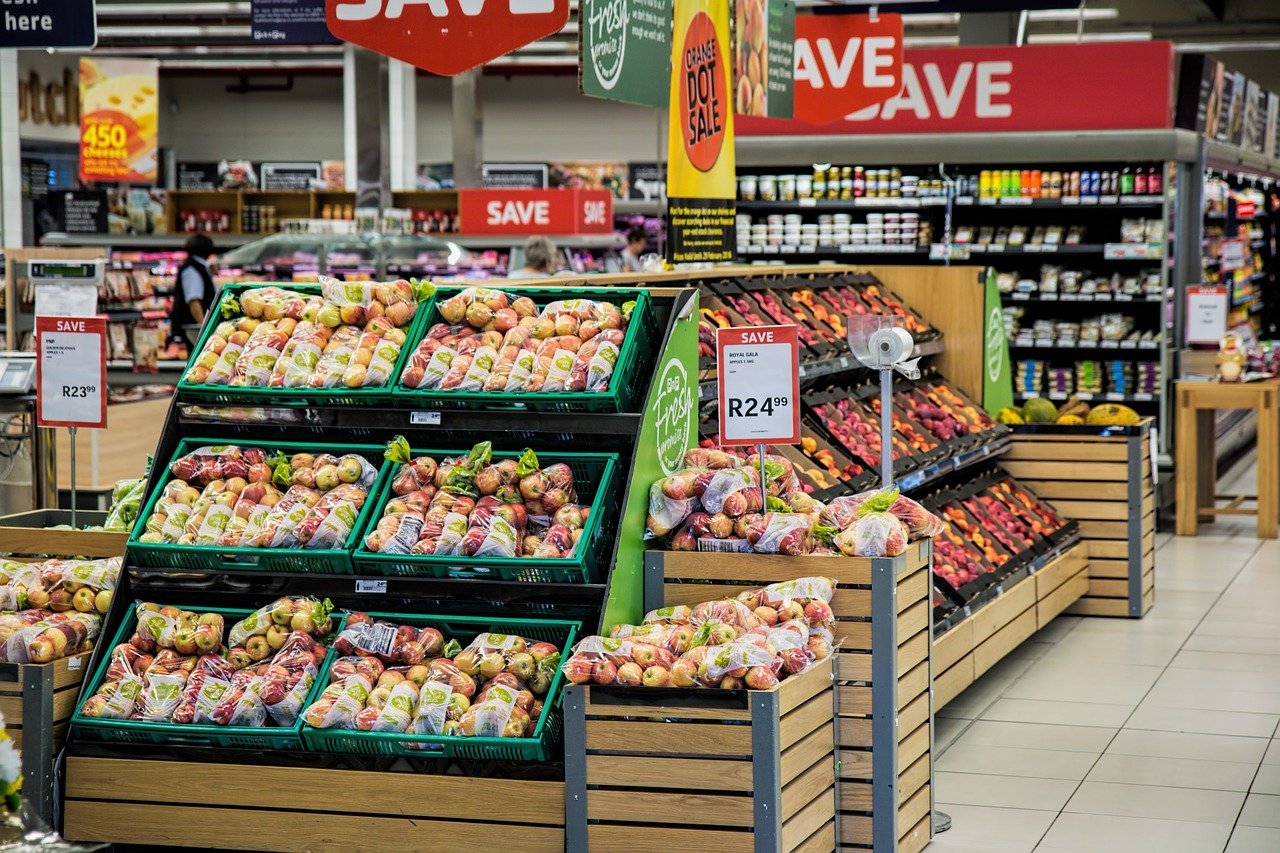Are you looking to start a profitable business in Nigeria? Look no further than palm oil! The production and sale of palm oil is a lucrative industry in Nigeria, and with the right resources and knowledge, you can easily establish your own successful palm oil business.
In this blog post, we’ll provide a comprehensive guide on how to start a palm oil business in Nigeria, including key steps such as selecting a business structure, obtaining the necessary permits, and finding a reliable source of palm oil. Read on to learn more about how to get started in the lucrative palm oil business in Nigeria!
Introduction to Palm Oil Business in Nigeria
First and foremost, you need to understand the market for palm oil in Nigeria. Conducting thorough market research will help you identify your target audience, understand their preferences, and determine the level of competition you may face. This will enable you to develop a solid business plan and make informed decisions regarding production, pricing, and marketing strategies.
Once you have gathered sufficient market intelligence, it is time to register your palm oil business with the appropriate government authorities. This step ensures that your business is legal and compliant with the necessary regulations. It also helps build credibility with customers and potential business partners.
Acquiring land and infrastructure is another crucial aspect of starting a palm oil business. You will need suitable land for cultivating palm trees and constructing processing facilities. Investing in high-quality equipment and machinery is essential to ensure efficient production and maximize output.
With your infrastructure in place, it’s time to purchase palm trees and start production. Selecting the right palm tree varieties and ensuring proper cultivation practices are key factors that will determine the quality and quantity of your palm oil yield.
Once your palm trees mature, it’s time to harvest and process the fruits into palm oil. This requires skilled labor and efficient processing techniques to extract the oil effectively and maintain its quality.
Also, marketing and selling your palm oil products are vital for the success of your business. Developing a strong brand, establishing distribution channels, and building relationships with buyers are crucial steps in promoting your products and generating revenue.
Maintaining and expanding your palm oil business requires constant attention to quality control, continuous innovation, and adapting to market trends. By staying updated with industry developments and customer preferences, you can stay ahead of the competition and ensure the long-term success of your palm oil business.
Market Research for Palm Oil Business in Nigeria
Market research is a crucial step when starting a palm oil business in Nigeria. It’s like taking a deep dive into the market to understand its dynamics, preferences, and competition. By conducting thorough market research, you can make informed decisions and develop a solid business plan.
So, where do you start with market research for your palm oil business? The first step is to identify your target audience. Who will be buying your palm oil products? Is it the local consumers or international buyers? Or perhaps both? Understanding your target market will help you tailor your production, pricing, and marketing strategies accordingly.
Next, you need to gather data on the current demand for palm oil in Nigeria. This means understanding the consumption patterns, market size, and projected growth rate. By analyzing this information, you can identify potential gaps in the market and find ways to position your business to meet those needs.
But don’t stop there! You also need to study the competition in the palm oil industry. Identify other palm oil businesses in Nigeria and assess their market share, pricing strategies, and distribution channels. This will help you determine your unique selling points and differentiate yourself from competitors.
Additionally, understanding consumer preferences is key. Conduct surveys or interviews to gather insights on the qualities and characteristics that customers look for in palm oil. This can include factors such as taste, quality, packaging, and pricing. By understanding what consumers value, you can develop a product that meets their needs and stands out in the market.
Lastly, keep an eye on industry trends and regulations. Stay informed about any changes or developments in the palm oil industry, such as government policies, sustainability initiatives, or new processing techniques. This will help you stay ahead of the curve and adapt your business accordingly.
Registering your Palm Oil Business in Nigeria
Now that you have conducted thorough market research and have a solid business plan in place, it’s time to register your palm oil business with the appropriate government authorities. This step is crucial to ensure that your business is legal and compliant with the necessary regulations.
To register your palm oil business in Nigeria, you will need to follow a few key steps. First, you will need to choose a business name and conduct a name search to ensure that it is available and not already in use by another business. Once you have a unique business name, you can proceed with the registration process.
Next, you will need to register your business with the Corporate Affairs Commission (CAC) in Nigeria. The CAC is responsible for the regulation and registration of all businesses in the country. You will need to complete the necessary forms and provide the required documentation, such as your business name, address, and details of the business owners.
In addition to registering with the CAC, you may also need to obtain specific permits or licenses depending on the nature of your palm oil business. For example, if you plan to engage in palm oil processing or manufacturing, you may need to obtain a food processing license or a manufacturing permit.
It is important to note that the registration process and requirements may vary depending on the state or local government where you plan to operate your business. Therefore, it is advisable to consult with a legal professional or business advisor who is familiar with the local regulations to ensure that you complete all the necessary steps and obtain the required permits and licenses.
By registering your palm oil business, you not only ensure its legality but also build credibility with customers and potential business partners. It demonstrates that your business is professional and adheres to the necessary regulations, which can go a long way in establishing trust and attracting customers.
Acquiring Land and Infrastructure for your Palm Oil Business
Once you have completed the necessary steps of market research and registration, it’s time to acquire the land and infrastructure for your palm oil business in Nigeria. This step is crucial, as it lays the foundation for your operations and ensures that you have the necessary resources to cultivate and process palm oil.
The first step in acquiring land is to determine the size and location that will best suit your palm oil business. Consider factors such as proximity to palm oil mills, accessibility, and availability of water sources for irrigation. It is also important to ensure that the land is suitable for growing palm trees, as they require specific conditions to thrive.
Once you have identified potential land options, it’s time to negotiate and purchase the land. Engage with the landowners and come to an agreement on the terms and price. It is advisable to work with a legal professional or land agent who can guide you through the process and ensure that all necessary documentation is in place.
In addition to land, you will also need to invest in infrastructure such as processing facilities and equipment. This includes purchasing machinery for harvesting, threshing, and extracting palm oil from the fruit. It is important to invest in high-quality equipment that will ensure efficient production and minimize downtime.
Furthermore, you may also need to construct storage facilities for your palm oil and establish an efficient transportation system to transport the product to market. These infrastructural investments are essential to ensure that your palm oil business runs smoothly and efficiently.
Acquiring land and infrastructure for your palm oil business may require significant capital investment. It is important to develop a detailed budget and secure the necessary funding to cover these costs. You may consider approaching financial institutions or investors who are interested in supporting agriculture or sustainable businesses.
Read Also: How to Make Money in Real Estate Without Investment
Purchasing Palm Trees and Starting Production
Once you have acquired the land and infrastructure for your palm oil business in Nigeria, it’s time to purchase palm trees and start production. This step is crucial as it determines the quality and quantity of your palm oil yield. Here’s a guide on how to successfully purchase palm trees and begin the production process.
The first step is to select the right palm tree varieties for your business. There are several different varieties available, each with its own unique characteristics and yield potential. It is essential to choose a variety that is well-suited to the climate and soil conditions of your land. Consulting with agricultural experts or local farmers can help you make an informed decision.
Once you have selected the palm tree varieties, it’s time to find a reliable source to purchase the palm trees from. Look for reputable nurseries or suppliers who specialize in palm tree cultivation. It is important to ensure that the palm trees are healthy and disease-free to maximize your chances of a successful harvest.
When purchasing palm trees, consider the age and size of the trees. Younger trees may take longer to reach maturity and start producing fruits, while older trees may have a higher initial cost but can provide immediate yield. It is advisable to strike a balance and purchase a mix of both young and mature palm trees to ensure a continuous and sustainable production cycle.
Once you have acquired the palm trees, it’s time to plant them on your land. Ensure that you follow proper planting techniques and provide adequate care to help the trees establish strong root systems. Regular irrigation, fertilization, and pest control are essential to ensure the health and growth of the palm trees.
As the palm trees mature, they will start producing fruits that can be harvested and processed into palm oil. The exact time frame for the first harvest can vary depending on the variety of palm trees and environmental conditions. It is important to closely monitor the trees and ensure proper harvesting techniques to maximize your oil yield.
Starting the production process requires skilled labor and efficient processing techniques. It is advisable to invest in quality processing equipment and hire experienced workers who are knowledgeable about palm oil extraction methods. Proper processing techniques will help ensure the extraction of high-quality oil that meets market standards.
Harvesting and Processing Your Palm Oil
Once your palm trees have matured and are producing fruits, it’s time for the exciting process of harvesting and processing your palm oil. This step is crucial in ensuring the quality and quantity of your palm oil yield.
Harvesting palm oil requires skilled labor and careful techniques. It’s important to closely monitor the ripeness of the fruits and harvest them at the right time to maximize oil extraction. This can be done by manually cutting off the fruit bunches or by using mechanical tools for larger plantations. The harvested fruits should be handled with care to avoid bruising or damage.
After harvesting, the palm fruits need to be processed to extract the oil. The first step is to separate the fruits from the bunches. This can be done manually or using a machine called a thresher. The fruits are then sterilized to kill any bacteria or contaminants. Sterilization can be done by boiling the fruits or using steam.
Next, the sterilized fruits are processed to separate the palm oil from the palm kernel. The fruits are pressed to extract the oil, and then the oil is clarified to remove any impurities. This can be done using methods such as settling, decanting, or using a centrifuge.
Once the oil has been clarified, it can be stored or further processed depending on its intended use. If you plan to sell raw palm oil, it can be filtered and packaged for sale. If you want to produce other palm oil products, such as palm kernel oil or palm oil derivatives, further processing may be required.
It’s important to maintain strict quality control measures throughout the harvesting and processing process to ensure that your palm oil meets market standards. This includes regular testing for quality and safety, as well as maintaining hygiene and cleanliness in the processing facilities.
Marketing and Selling Your Palm Oil Products
Now that you have successfully harvested and processed your palm oil, it’s time to focus on marketing and selling your products. This crucial step will determine the success and profitability of your palm oil business in Nigeria. Here are some effective strategies to help you promote and sell your palm oil products in the market.
First, you need to develop a strong brand identity for your palm oil business. This includes creating a memorable and eye-catching logo, designing attractive packaging, and establishing a unique selling proposition. A well-defined brand will help differentiate your products from competitors and attract customers.
Next, establish distribution channels to ensure your palm oil products reach the target market. This can include selling directly to retailers, wholesalers, or even partnering with restaurants or food processors. Consider attending trade shows or food exhibitions to showcase your products and connect with potential buyers.
Digital marketing can also play a significant role in promoting your palm oil business. Create a professional website where you can showcase your products, provide information about your business, and even allow customers to place orders online. Utilize social media platforms such as Facebook, Instagram, and LinkedIn to engage with your target audience and build a loyal customer base.
Building relationships with buyers is crucial for long-term success. Attend industry events and networking sessions to connect with potential buyers and establish partnerships. Offer samples of your palm oil products to key players in the market and ask for their feedback. Positive testimonials and word-of-mouth recommendations can go a long way in attracting new customers.
Don’t forget about the power of storytelling. Share the story behind your palm oil business, highlighting the sustainability and ethical practices you follow. Consumers are increasingly conscious about where their products come from, so being transparent and authentic can help build trust and loyalty.
Maintaining and Expanding your Palm Oil Business.
Once you have established your palm oil business in Nigeria, the journey doesn’t stop there. Maintaining and expanding your business is crucial for long-term success and profitability. Here are some key strategies to help you effectively maintain and expand your palm oil business:
- Quality Control: Consistently maintaining high-quality standards is essential. Regularly test your palm oil for quality and safety to ensure it meets market demands. Implement strict quality control measures throughout the production process to deliver a superior product to your customers.
- Customer Satisfaction: Building strong relationships with your customers is crucial. Listen to their feedback and strive to meet their needs and expectations. Provide excellent customer service, address any concerns promptly, and go the extra mile to exceed their expectations.
- Continuous Innovation: Stay ahead of the competition by constantly innovating and improving your products. Stay updated on industry trends, research new processing techniques, and invest in technology to enhance your production processes. Continuously adapt and improve your products to meet changing customer preferences and market demands.
- Market Expansion: Look for opportunities to expand your market reach. Identify potential new markets, both domestically and internationally, and develop strategies to penetrate those markets. Explore partnerships with distributors, retailers, and wholesalers to increase the distribution of your products.
- Sustainable Practices: Embrace sustainability in your palm oil business. Implement environmentally friendly practices, such as responsible land management and sustainable farming techniques. Consumers are increasingly conscious about sustainability, and promoting your business as environmentally friendly can help attract customers and create a positive brand image.
- Building Strategic Partnerships: Collaborate with other businesses and stakeholders in the palm oil industry. Form partnerships with suppliers, processors, and even government organizations to gain access to resources, knowledge, and support. These partnerships can help you navigate challenges, access new markets, and foster innovation.
FAQS
How much do you need to start a palm oil business?
The initial capital required to start a palm oil business in Nigeria can vary significantly based on factors such as scale, location, processing facilities, and marketing strategy. A small-scale operation might require around ₦100,000 to ₦500,000, while a larger enterprise could demand several million Naira.
How to start selling palm oil in Nigeria?
To start selling palm oil in Nigeria, follow these steps:
- Conduct thorough market research.
- Source high-quality palm oil from reputable suppliers.
- Register your business and obtain necessary permits.
- Set up a processing and packaging facility, if applicable.
- Develop a brand identity and packaging.
- Create a distribution network.
- Market your products through various channels, including local markets, retailers, and online platforms.
How much is 25 litres of palm oil in Nigeria?
The price of 25 litres of palm oil in Nigeria can fluctuate based on factors such as location, quality, and market demand. As of the latest available information, it can range from approximately ₦12,000 to ₦20,000.
Which month is palm oil cheap?
Palm oil prices in Nigeria can be influenced by seasonal factors, with the rainy season (usually between April and October) often resulting in higher production and potentially lower prices due to increased supply. However, market dynamics and external factors also play a role in price fluctuations.
How much is 1 ton of palm oil in Nigeria?
The price of 1 ton (1000 kilograms) of palm oil in Nigeria varies based on market conditions, quality, and location. As of the latest available data, prices can range from around ₦500,000 to ₦800,000 or more per ton.
Conclusion
Starting a palm oil business in Nigeria can be a profitable venture. However, it is important to do your research and plan carefully before you get started.
If you are thinking about starting a palm oil business in Nigeria, I encourage you to do your research and plan carefully. With careful planning and execution, you can be successful in this lucrative industry.






